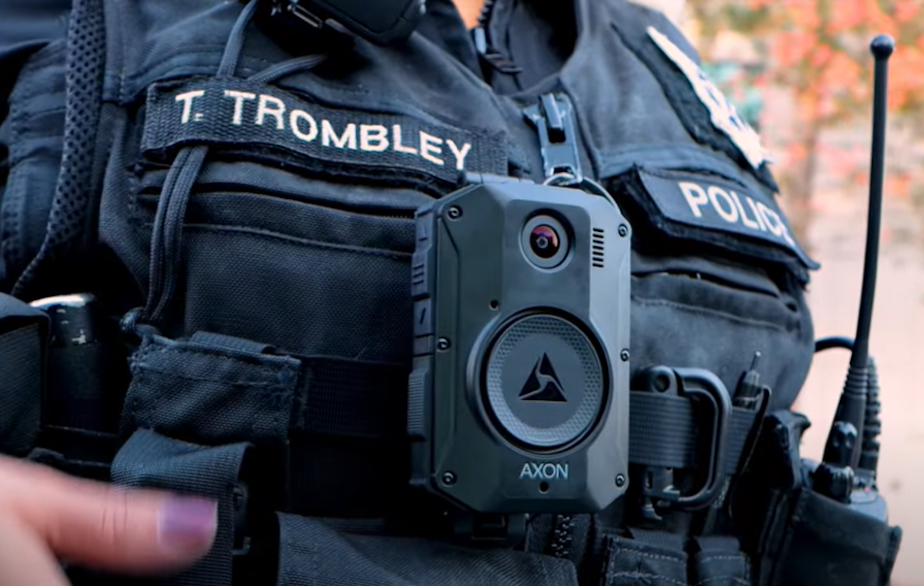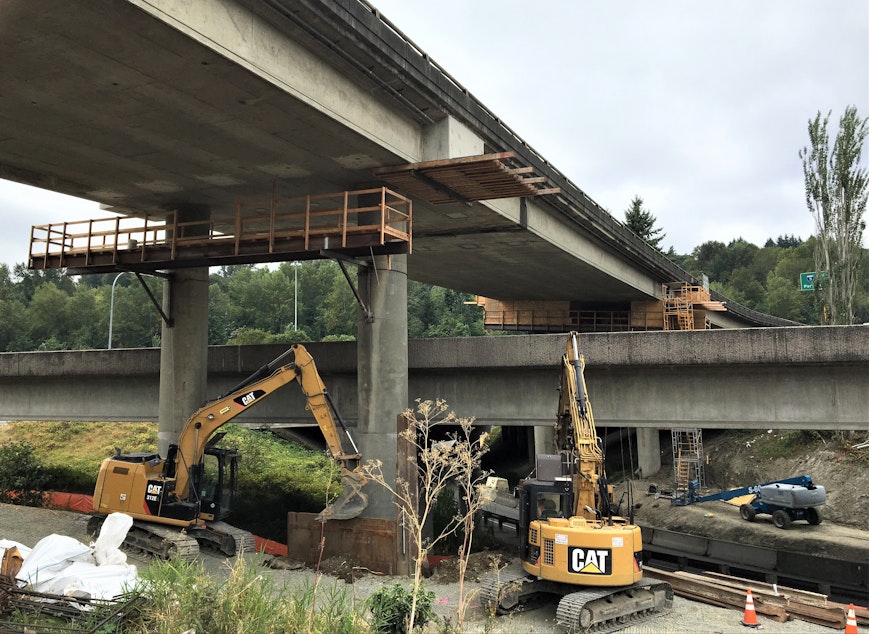Kirkland on camera: Today So Far

I've slightly derided Kirkland in the past (in an endearing way, sort of), but the city deserves a virtual high five for its recent trend of innovation and embracing new tech.
This post originally appeared in KUOW's Today So Far newsletter for December 7, 2022.
Kirkland has begun phasing in body cams across its police department. The traffic department has already started using them. The patrol unit will be issued cameras Dec. 15-29. Specialty units will get the body cams in January 2023.
The body cams can be manually turned on, and they will also start recording any time an officer draws their weapon. It also turns on when an officer activates their patrol car lights. At the end of a shift, the cameras are placed in a docking station that automatically downloads the video files. Officers also have some level of discretion, such as when speaking with sexual abuse victims.
There's a sentiment that you often hear from police departments and cities when body cams come up in conversation. It's usually something like, "This is such new technology, we need to think really hard about it."
Police departments should certainly think hard about it — specifically about how to get them on every officer as fast as possible. This is not new technology. UK police started using body cams in 2005. That's before the iPhone existed. The National Institute of Justice issued guidance for the cameras in 2016. The NIJ would say that results of body cams are mixed. But studies, like this one out of the University of Chicago found that police departments using body cams have seen a 17% drop in complaints, and a 10% drop in use-of-force incidents. A DOJ study concluded that, while officers wearing cameras made more arrests and issued more citations, the cameras ended up saving cities money (fewer complaints, and resolving complaints was easier and quicker). Ultimately, the DOJ said the cameras "have compelling effects without increasing costs."
So, in short, this is not exactly some strange new tech that we don't know much about.
Sponsored
Kirkland's new tech doesn't stop with body cams. The city is currently engaged in a Street Racing Noise Pilot Program. The city has set up two listening stations with cameras geared toward catching illegally modified cars. The idea is similar to red light cameras — race along these streets, get caught on video. Since this is a pilot, the city isn't actually saving or viewing video data, and it's not issuing tickets. The results of the pilot could inform how this tech is used in the future.
And it's not innovative tech, per say, but Kirkland also ran a few gun buyback events over the past few months. Over the summer, the city paid $18,000 to take in more than 150 guns.
AS SEEN ON KUOW

Sponsored
ALSO ON OUR MINDS

Some freeways may be useable following 'the Big One' per new modeling by UW
New modeling by the University of Washington of the impacts of a major Cascadia earthquake offers a less dire picture of the aftermath of the so-called "Big One" — specifically when it comes to highway bridges.

